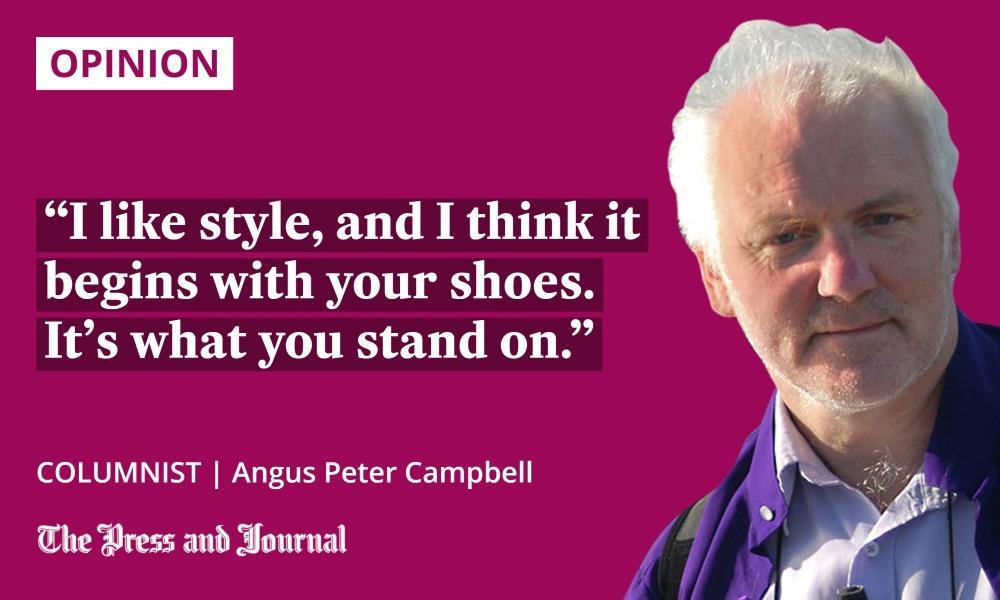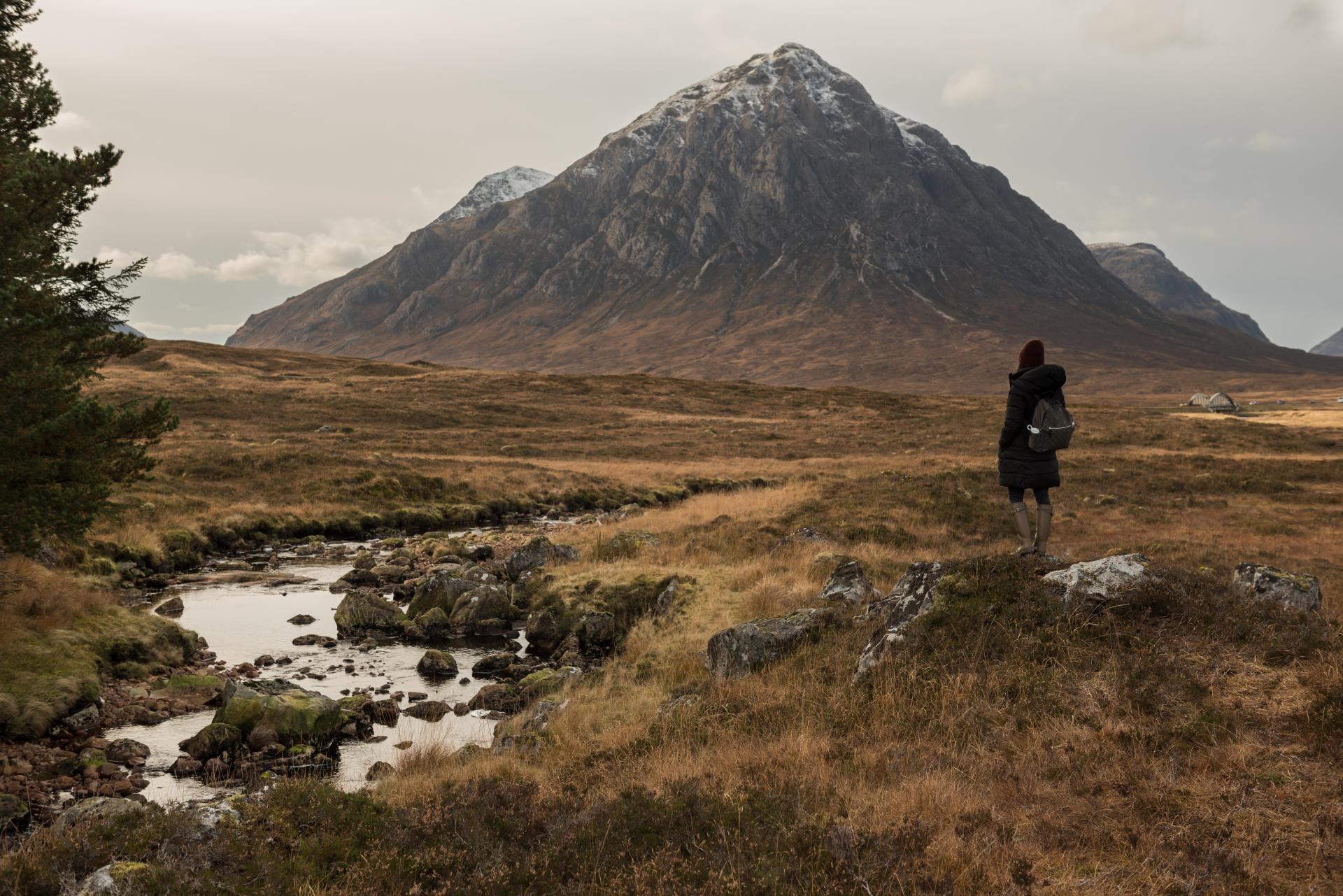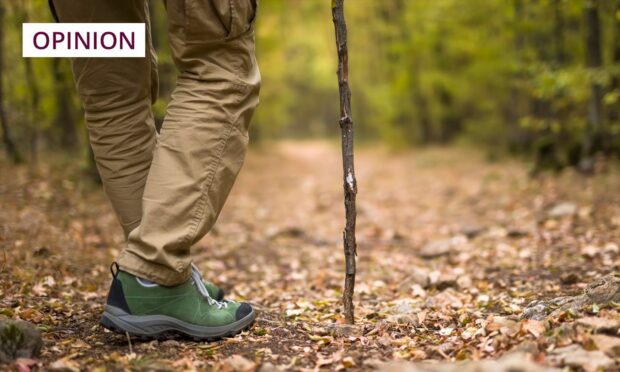I wore size 10 shoes throughout my adult life, until I got married, 30 years ago.
I then changed to size 11. Not because my feet suddenly grew bigger overnight, but because my wife noticed that my shoes were far too tight. O wad some Power the giftie gie us. To see oursels as ithers see us!

Like all clothes, shoes have an aesthetic as well as a practical function. If they’re not beautiful, they’re useless, and if they’re not useful, they’re ugly. They should keep you dry and steady as well as tall and handsome. Heels increase your height, and pointed toes make you look thinner. Apparently.
And then there’s wellingtons. Ah, now there’s the business.
Blue overalls and ordinary black wellingtons see any native Highlander through normal circumstances, such as visiting Inverness or walking through puddles on the way to watch Ross County. Though, if we have to go to any high society functions in Dingwall, we have been known to turn down the wellington tops in a rather dashing way.
I have even known gentlemen who turned them down double if they were going to a dance. The folds were handy for keeping cigarettes in.
Not for us, however, the green wellies, unless we were on our way to Oban for the Argyllshire Gathering. Fishermen, of course, have their own bright yellow ones, which Boydie has made famous from Balallan to the Barrowlands.
I was neither a mod nor a rocker, but I always admired the older boys who swished around with their Brylcreemed hair and their long and pointed winklepicker shoes. I always liked the name winklepickers, which was the footwear of choice for British rock and roll fans from the 1950s onwards. Though, in reality, they weren’t much use for picking shellfish down on the Uist shore.
Culture and fashion cost more than money
But footwear is a serious topic, and nothing demonstrates that more than the historic and brutal Chinese practice of binding women’s feet; something which began in the 10th century and lasted right through until the 20th, with tiny “lotus feet” hugely admired in some sections of society and in certain provinces. Culture and fashion cost more than money.
We call a shoe a “bròg” in both Scottish Gàidhlig and Irish Gaeilge. Hence the derivation of the Scotticised and Anglicised word: brogues. A word which carries pejorative weight because, from the early 18th century onwards, brogues were
commonly thought to differentiate the Catholic Irish (the downtrodden poor) from the (richer) Protestant settlers.
In practice, the distinction between brogues and shoes was primarily functional by 1760, with brogues serving as the footwear for work and manual labour
Basically, the poor wore brogues and the rich, or upwardly-mobile, shoes. So much so that the term was transposed to depict the accent of the Irish when they spoke English. “They speak the brogue”, signifying poverty, backwardness, rurality, Gaelic. It seems your accent (whether Eton or Eriskay), just like your shoes, is a political statement.
In practice, the distinction between brogues and shoes was primarily functional by 1760, with brogues serving as the footwear for work and manual labour, and shoes for leisure and clerical activities.
At that time, anyway, shoes sold for double the price of brogues. These days it’s the other way round, with a good pair of brogues rightly fetching a better price than a flimsy pair of shoes.
Style begins with what you stand on
I like style, and I think it begins with your shoes. It’s what you stand on. You dress according to circumstances. There’s no such thing as bad weather, as they say in Lewis – only inadequate oilskins.
I have worn an evening suit a couple of times, though I doubt I’d wear it to go out jogging. Not that I ever go jogging, mind you. Same with my pyjamas and suede moccasins – I don’t think I’d slip into them to go off for a job interview.
A more important point rises: the effect of our physical and cultural environment on how we dress.
When in Rome, or in Rothienorman, do as the Romans or Rothienormanites do. If you live near the Arctic Circle, for example, you have less need for sandals and T-shirts (even with global warming) and, if you live in Africa, you probably have less of a requirement for your granny’s old fur coat.
Which reminds me of the Buchan loon unable to put his wellies on anymore. “Fit’s the maitter?” He was asked.
“Aye, weel. Ma aul mither telt me tae putten on a spleet new pair o stockins ilky day an noo ah canna get ma feet inta ma beets.”
I suspect, like me, he needs to move up a size or two.
Angus Peter Campbell is an award-winning writer and actor from Uist








